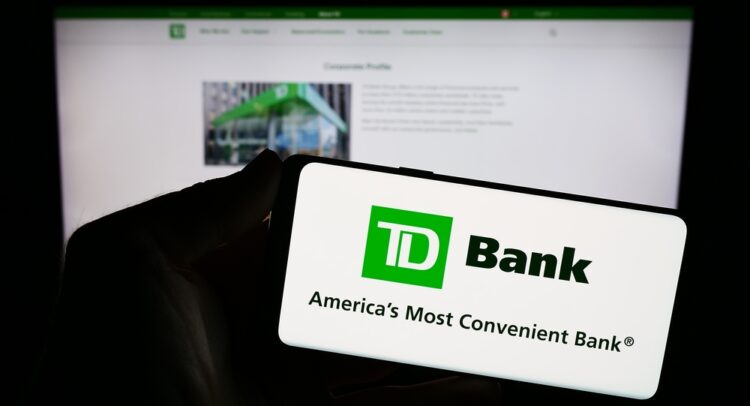A class action lawsuit was filed against Toronto-Dominion Bank (TD) (TSE:TD) by Levi & Korsinsky on October 22, 2024. The plaintiffs (shareholders) alleged that they bought TD stock at artificially inflated prices between February 29, 2024 and October 9, 2024 (Class Period) and are now seeking compensation for their financial losses. Investors who bought Toronto-Dominion Bank stock during that period can click here to learn about joining the lawsuit.
Invest with Confidence:
- Follow TipRanks' Top Wall Street Analysts to uncover their success rate and average return.
- Join thousands of data-driven investors – Build your Smart Portfolio for personalized insights.
Toronto-Dominion Bank, aka TD Bank, is one of the largest banking and financial services providers in Canada and North America. Its services include personal banking, commercial banking, insurance solutions, and small business solutions.
The company’s false claims about appropriate control and prevention of anti-money laundering (AML) practices are at the crux of the current complaint.
Toronto-Dominion Bank’s Misleading Claims
According to the lawsuit, TD Bank and four of its senior executives (Individual Defendants) repeatedly made false and misleading public statements throughout the Class Period. Particularly, they are accused of omitting truthful information about the Company’s AML program from SEC filings and related material.
For instance, during the Class Period, the defendants constantly reiterated the importance and priority given to bringing the AML practices in line with required standards. In an earnings call at the beginning of the Class Period, the CEO stated that the bank was aware of the looming doubts about its AML program and risk and control infrastructure investments. The CEO mentioned that the bank was making positive steps to fix the AML issue each day.
Furthermore, in a presentation hosted on March 26, 2024, at the National Bank’s 22nd Annual Financial Services Conference, the CEO again noted that the bank considers any sort of breach in governance and control processes very seriously and is working toward fixing it.
However, subsequent events (discussed below) revealed that TD Bank had failed to comply with the U.S. AML rules and also accepted its failure in monitoring and preventing money laundering activities.
Plaintiffs’ Arguments
The plaintiffs maintain that the Defendants deceived investors by lying and withholding critical information about the company’s business practices during the Class Period. Importantly, the Defendants are accused of misleading investors about the extent of the AML issues and measures being taken to fix the oversight.
The information became clear on October 10, 2024, when TD Bank revealed that it was slammed with a $3.09 billion penalty related to resolutions of the U.S. investigations relating to money laundering at its U.S. business. That’s not all, the regulators even put restrictions on the bank’s asset growth in the U.S.
Notably, the Office of the Comptroller of the Currency (OCC) imposed an asset cap of $434 billion on TD Bank and its U.S. subsidiaries. Moreover, TD Bank would have to undergo more stringent approval processes for the rollout of any further products and services.
Investors’ nightmare became true when the U.S. Department of Justice issued a press release pointing to the severity of TD Bank’s failure. The Department called it “the largest bank in U.S. history to plead guilty to Bank Secrecy Act program failures, and the first US bank in history to plead guilty to conspiracy to commit money laundering.”
Following the news, TD stock price collapsed by 10.2% in just two trading days.
To conclude, the defendants allegedly misled investors about the bank’s involvement in money laundering practices and failure to implement proper control over such activities. Year-to-date, TD shares have declined by 13%.










